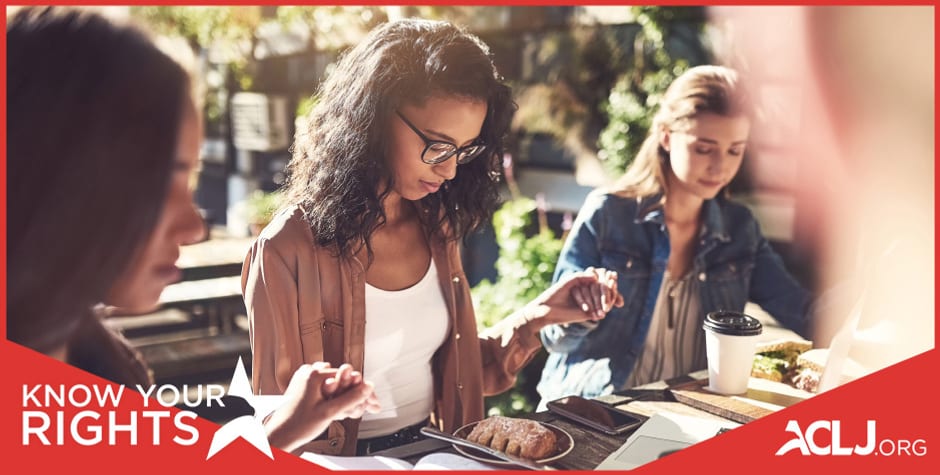Know Your Rights: The Right To Pray in Public
From the nation’s founding to the present day, Presidents and governors have called for voluntary prayer or reflection in response to natural disasters, tragedies, and other significant events. Those who signed the Declaration of Independence believed that God hears and answers prayer, as they “appeal[ed] to the Supreme Judge of the World for the Rectitude of [their] intentions.” Declaration of Independence (U.S. 1776).
Contrary to what some may believe, the First Amendment protects the right to pray in public. Unfortunately, despite the long history of official government acknowledgment of the role of religion in American life, there are still organizations that challenge the right of private citizens to participate in prayer on public property. The American Humanist Association (AHA) is one such organization, and the ACLJ has been involved in a nine-year-long legal battle with AHA over a community prayer vigil organized in a Florida community to ask for God’s protection against crime. The AHA insisted that the community prayer vigil violated the Establishment Clause. We’ve been fighting at multiple levels of the federal court system, including the Supreme Court, in this case. The right to pray publicly, while subject to some constraints, is still robust, and the ACLJ continues to fight for its continued vitality.
Through our Know Your Rights series, we will continue to educate the public on their First Amendment freedoms. Find a more in-depth review of the law regarding your right to pray in public in this legal memo.
The First Amendment to the United States Constitution prohibits the government from “abridging the freedom of speech.” U.S. Const. amend. I. Supreme Court case law “establishes that private religious speech, far from being a First Amendment orphan, is as fully protected under the Free Speech Clause as secular private expression.” Capitol Square Review & Advisory Bd. v. Pinette. Thus, one’s participation in activities such as prayer, worship, and other religious speech, is protected under the First Amendment. Widmar v. Vincent.
In a major case argued by the ACLJ, the Supreme Court stated, “[T]here is a crucial difference between government speech endorsing religion, which the Establishment Clause forbids, and private speech endorsing religion, which the Free Speech and Free Exercise Clauses protect.” Bd. of Educ. of the Westside Comm. Sch. v. Mergens.
Last term, the Supreme Court reinforced this principle in Kennedy v. Bremerton School District, holding that the First Amendment protects a public high school football coach’s right to pray privately on the football field after a game.
Both the Free Exercise and Free Speech Clauses . . . protect [private religious] expressions [in a public place]. Nor does a proper understanding of the . . . Establishment Clause require the government to single out private religious speech for special disfavor. The Constitution and the best of our traditions counsel mutual respect and tolerance, not censorship and suppression, for religious and nonreligious views alike. . . . Respect for religious expressions is indispensable to life in a free and diverse Republic—whether those expressions take place in a sanctuary or on a field, and whether they manifest through the spoken word or a bowed head.
The right to pray before legislative meetings, such as town council meetings, has also been a subject of substantial litigation. But the Supreme Court has upheld such prayers, rejecting the argument that they violate the Establishment Clause. Town of Greece v. Galloway.
We have been providing assistance and legal representation, at no cost or charge, to people just like you for decades. If your rights are being violated in this area, please contact us at ACLJ.org/HELP.

